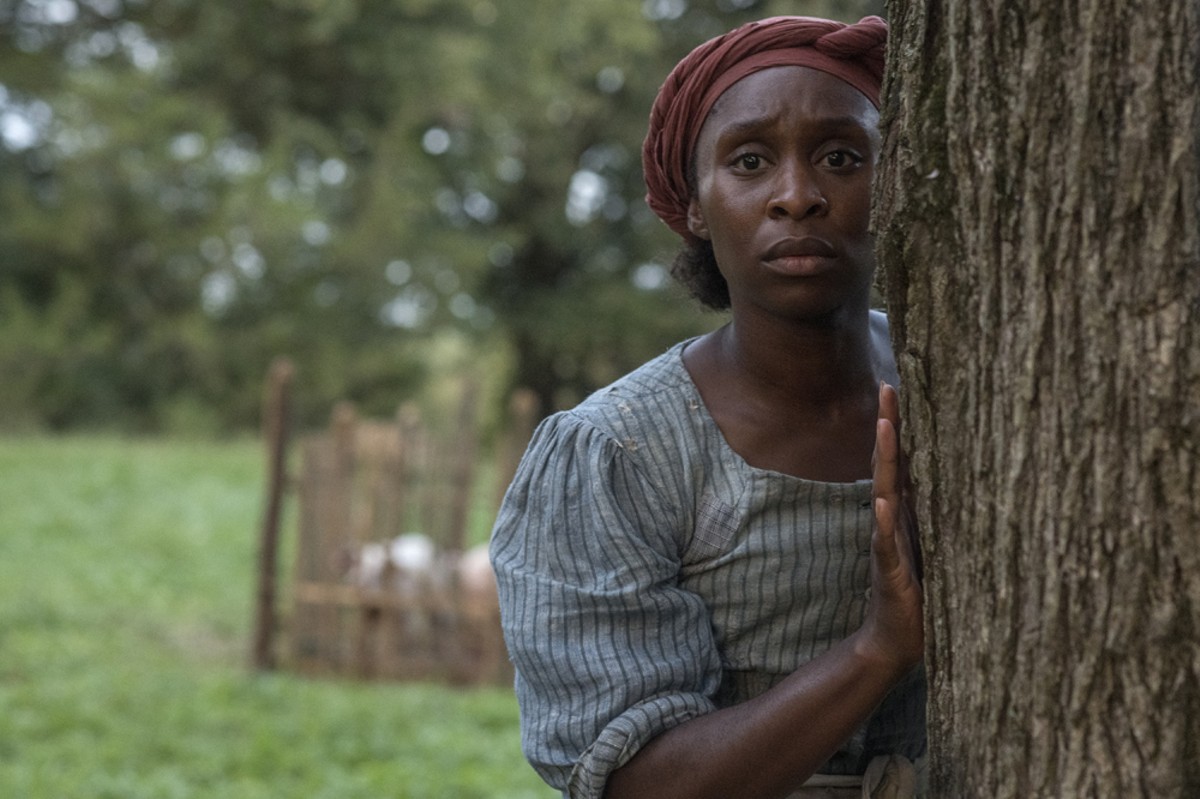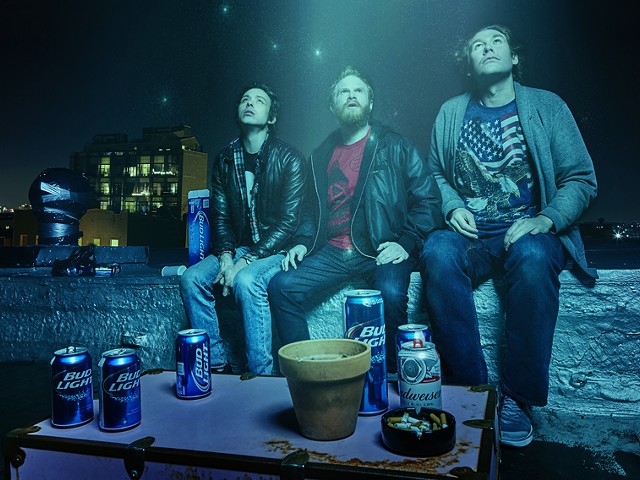Pitting a loosely rendered historical figure against a surly, vengeful fop resentful of her hard-won freedom, Harriet (as in Tubman) is far less than what it could have been, a tale of obvious (if finite) triumph beset with too many on-screen single tears. As directed by Kasi Lemmons (Eve's Bayou, Black Nativity) and starring Cynthia Erivo (who shone in Widows even in a small role), Harriet is basically an origin story for Tubman, tracing her escape from pre-Civil War enslavement to her renowned role as a key conductor on the Underground Railroad, from which she led hundreds of Black Americans to freedom.
Erivo in the role scans as frequently ill at ease, moving awkwardly in period clothes and the film's too-small handful of locations. The effect of this is unfortunate, collapsing the adventure-story journey in which Harriet might find a tense pulse to a few repeated compositions of characters stumbling lamely through brush. These sequences have little of their hoped-for tension, and the figures in flight are just un-muted extras with little sense of character or life. Nevertheless, the uncertainty of Erivo's gestures embodies richly at times an air of someone recently emancipated, struggling to feel herself naturally as a woman, a free person, a human being. "Walk like you got a right to," a helpful co-conspirator tells her at the end of her first journey (just one leg of a relay), offering the notion that learning to do so for anyone recently freed would be no small task.
While there are flickers of personal and political insight like this one throughout, Harriet overall feels muddled, unable to find the necessary looseness or structure to reconcile with the ways history refuses to fall cleanly into received narratives. Stilted and confined in its explorations (and aesthetically conservative by any stretch — overlit, plainly shot, and slackly edited), it can't seem to decide the story it wants to be. Is Harriet a movement from passive-to-active, the journey of an oppressed woman's repossession of herself, and others thereafter? A cry for individual freedom? Or is it an adventure tale-cum-travelogue, detailing a rigorous journey across hundreds of miles of hostile terrain? It could just as easily be a feminist revenge tale against the aforementioned fop, or an allegory of our own time's racialized political struggles — or even a spiritual story of a messianic figure empowered by faith to excel beyond the limits of her time. In flashes it is most of these, offering glimpses of these opportunities offered by its subject — but by and large it feels wracked, like its version of Tubman's character, by pervasive indecision, and overwhelmed by the amount of ground it has to cover.
In failing to find its story, it struggles, too, to settle upon a vision of Tubman that's coherent or psychologically convincing across its roughly two-hour span. At times, Tubman is comforted by sage patriarchs and father figures; at others she rebels against them, asserting herself through potent oratory or political actions both quiet and overt. Whether she needs their feedback or they're simply talking down isn't clarified remotely by the camerawork, the story structure, or any confluence of performance. Could a woman this exceptional really have needed these men's pat guidance? Bromides like "Fear is your enemy," "Follow the North Star," and "Trust in God" must surely have been nearly as cliched and useless in 1849 as they seem today, but they glide by unremarked upon, as though they could be useful. Dramatically off-kilter yet weirdly placid, Harriet shows no sign of self-awareness regarding such deliveries, finding only piety and reluctant movement where there could be energy or rich frisson.
If Harriet has a true thematic lodestone, relatively speaking, it seems to be in the assertion of Tubman against white patriarchy as exemplified by her former masters, personified in the bratty, faintly charismatic aspect of Gideon Brodess (Joe Alwyn) in particular. In a matchup that feels less filmic than televisual in its protracted, serial vibe, the two confront each other on bridges and in forests, hear rumors of one another from afar, and carry out — over long distances — their respective, loosely circumscribed vendettas. Though it doesn't home in on these, Harriet does make much of the moments in which Tubman levels the small gun she carries — whether at Gideon, some cowardly allies, or other more malevolent oppressors. The effect is one of temptation: a gestural tease of a retributive violence that might offer the film a sort of climax. Yet by hewing to historical material (however loosely), Harriet's a film that feels shackled to duty like so many biopics — bound more to a sense of obligation rather than its own narrative wants or voice, and as a result it feels deflated, unable to attain the freedom it clearly desires. Lacking the imagination to find a story in the rich history it courts (and declining the chance to embrace itself as resonantly folkloric; a fiction, albeit a historical one) Harriet feels mired by its air of respect, distance, and trepidation — too unlike its subject, too much like its lead.
Stay on top of Detroit news and views. Sign up for our weekly issue newsletter delivered each Wednesday.






